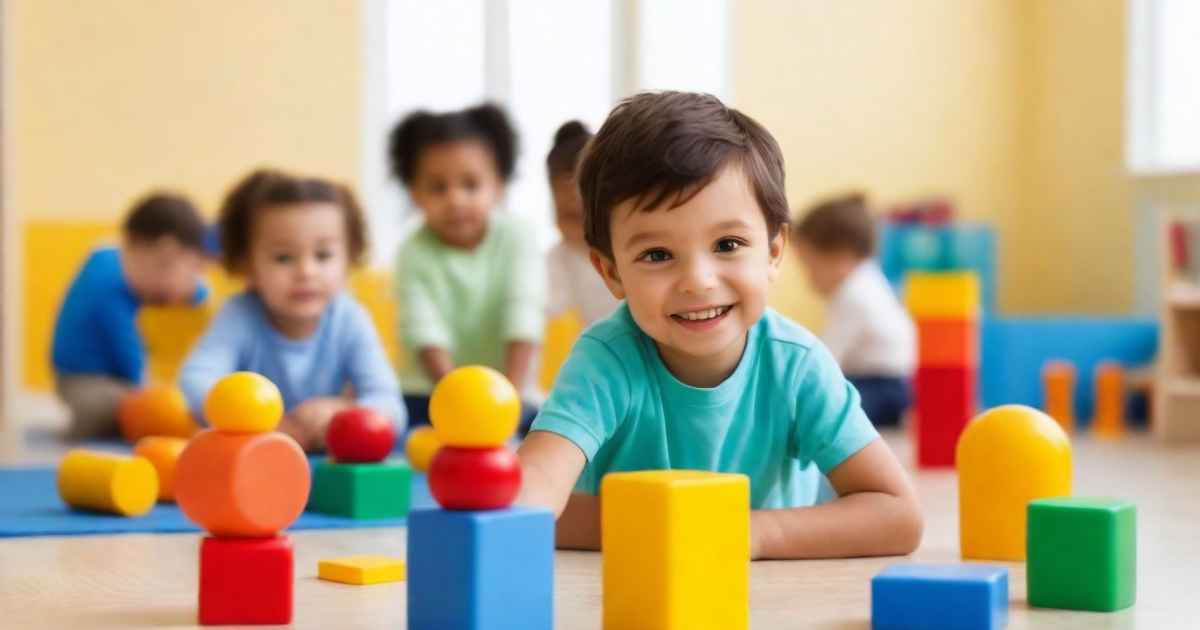Daycare vs. Preschool: Picking the Perfect Playful Place for Your Child
Deciding between daycare or preschool can feel overwhelming for parents. Both offer childcare but cater to different needs. Daycare prioritizes flexible schedules and care for a wider age range, making it ideal for working parents with infants or school-age children who need before-and-after school care. Preschool focuses on early childhood education for children from 3–6 years old, preparing them for kindergarten with structured learning activities and social interaction. Consider your child’s age, schedule, and developmental needs to pick the program that best fosters their growth and sets them on the path to success.

Daycare: A Nurturing Haven
Juggling work and childcare is a constant challenge for parents. As your little one grows out of the baby stage, you might wonder: What comes next? Daycare or preschool? Both offer care for your child, but they have distinct purposes. This article will help you navigate this crucial decision by exploring the unique benefits of daycare and preschool and ultimately guiding you toward the perfect fit for your child’s needs.
Understanding Your Options: Daycare vs. Preschool
While daycare and preschool supervise and care for your child, their core goals differ. Here’s a breakdown to help you understand which might be a better fit:
Daycare: Often referred to as childcare, daycare caters to a wider age range, typically from infancy to school (around 12 years old). Daycare prioritizes providing a safe and nurturing environment where children can play, socialize, and receive basic needs like meals and naps. Many daycare centers offer before-and-after school care for school-age children, making them a convenient option for working parents.
Preschool: Geared towards children between the ages of 3 and 6, preschool programs focus on early childhood education and development. Children learn important social skills through play-based activities like sharing and taking turns. Preschools also introduce basic academic concepts like letters, numbers, shapes, and colors, preparing children for the foundation they’ll need in kindergarten.
Choosing the Right Fit: Consider Your Child’s Needs
There’s no one-size-fits-all answer to daycare vs. preschool. The best choice depends on your child’s needs and their family’s circumstances. Here are some factors to consider:
Age: Daycare is a broader option for various age groups, while preschool caters to 3-6 year olds.
Schedule: Daycare often offers flexible schedules, including full-time, part-time, and before-and-after school options. Preschool programs typically have more structured schedules, mirroring a school day format.
Learning and Development: Daycare prioritizes social interaction and basic care, while preschool focuses on preparing children for kindergarten through structured learning activities.
Social Interaction: Both daycare and preschool provide opportunities for social interaction, but preschool environments Usually, there are fewer students in the class, so each child gets more attention.
Cost: Costs can vary depending on location, program type, and schedule. Explore options like daycare centers with scholarships or home-based preschools for lower costs.
If you need a safe and reliable childcare option with flexible hours, daycare might be the perfect fit. Here are some additional benefits to consider:
Catered to Various Needs: Daycare accommodates a wider age range, providing care for infants, toddlers, and even school-age children.
Flexible Schedules: Daycare centers often offer full-time, part-time, and before-and-after-school care options, allowing you to choose your work schedule.
Socialization and Play: Daycare provides a nurturing environment where children can interact with peers, develop social skills, and engage in age-appropriate play activities.
Structured Routines: Even with flexible schedules, daycare centers typically have routines for mealtimes, nap times, and playtime, offering a sense of structure for young children.
Preschool: A Learning Launchpad
Preschool is an excellent option if you’re looking for a program specifically designed to prepare your child for kindergarten. Here are some additional benefits to consider:
Early Academics: Preschool introduces basic concepts like letters, numbers, shapes, and colors, giving your child a head start in kindergarten.
Social and Emotional Development: Preschool programs foster social skills like communication, collaboration, and conflict resolution in a safe and structured environment.
Preparation for Kindergarten: Preschool familiarizes children with classroom routines, expectations, and social interactions, easing the transition to kindergarten.
Structured Learning Activities: Preschool provides a curriculum with planned activities to stimulate learning and development.
The Perfect Choice: It’s All About Your Child
Ultimately, deciding between daycare and preschool depends on your child’s needs and your family’s priorities. Consider your child’s age, personality, learning style, and schedule.
Here are some additional tips to guide you:
Talk to Your Child’s Pediatrician: Discuss your child’s development and get their professional opinion on daycare vs. preschool.
Visit Programs in Person: Schedule tours of daycare centers and preschools to observe the environment, meet the staff, and ask questions.
Conclusion
The decision between daycare and preschool is an important one. By understanding the unique benefits of each option and considering your child’s individual needs, you can choose the program that best fosters their development and prepares them for a bright future. Remember, there’s no single “right” answer. The perfect program provides a secure, caring, and exciting place where your child can grow and do well.